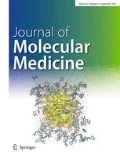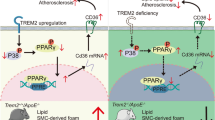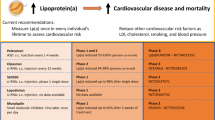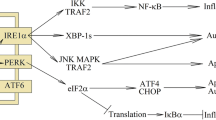Abstract
ApoA-I(R151)Paris is a natural apolipoprotein (apo) A-I variant that is associated with low levels of high-density lipoprotein cholesterol (HDL-cholesterol) and the partial deficiency of lecithin:cholesterol acyltransferase (LCAT) in the plasma of heterozygous carriers. We compared the abilities of recombinant normal apoA-I and recombinant apoA-I(R151C)Paris to clear an emulsion of dimyristoylphosphatidylcholine (DMPC), to form reconstituted lipoproteins with dipalmitoylphosphatidylcholine (DPPC), to activate LCAT, and to promote efflux of biosynthetic cholesterol from porcine aortic smooth muscle cells (SMCs) or of exogenous cholesterol from lipid-loaded mouse peritoneal macrophages. Recombinant apoA-I(R151C)Paris occurred in monomeric and dimeric forms at a ratio of 60:40. Normal apoA-I and apoA-I(R151C)Paris cleared DMPC emulsions at equal rates. Both isoforms associated completely with DPPC during cholate dialysis. Normal apoA-I formed one single particle with a mean diameter of 9.3 nm, whereas apoA-I(R151)Paris gave rise to three particles with mean diameters of 9.3 nm (containing 74% of apoA-I), 10.6 nm, and 12.1 nm, respectively. Compared to normal apoA-I, apoA-I(R151C)Paris had a reduced LCAT-cofactor activity with a 60% lower V max/K m ratio due to a 50% higher affinity constant, K m. During incubations for 10 min and 360 min, normal apoA-I/DPPC complexes and apoA-I(R151C)Paris/DPPC complexes were equally efficient in releasing biosynthetic cholesterol from SMCs. In the lipid-free form, apoA-I(R151C)Paris induced normal hydrolysis of cholesteryl esters and normal cholesterol efflux from lipid-loaded mouse-peritoneal macrophages. In conclusion, in addition to its ability to form homo- and heterodimers, apoA-I(R151C)Paris is characterized by defective LCAT-cofactor activity but by normal lipid binding and cholesterol-efflux-promoting abilities.
Similar content being viewed by others
Author information
Authors and Affiliations
Additional information
Electronic Publication
Rights and permissions
About this article
Cite this article
Daum, U., Langer, C., Duverger, N. et al. Apolipoprotein A-I(R151C)Paris is defective in activation of lecithin:cholesterol acyltransferase but not in initial lipid binding, formation of reconstituted lipoproteins, or promotion of cholesterol efflux. J Mol Med 77, 614–622 (1999). https://doi.org/10.1007/s001099900034
Received:
Accepted:
Published:
Issue Date:
DOI: https://doi.org/10.1007/s001099900034




